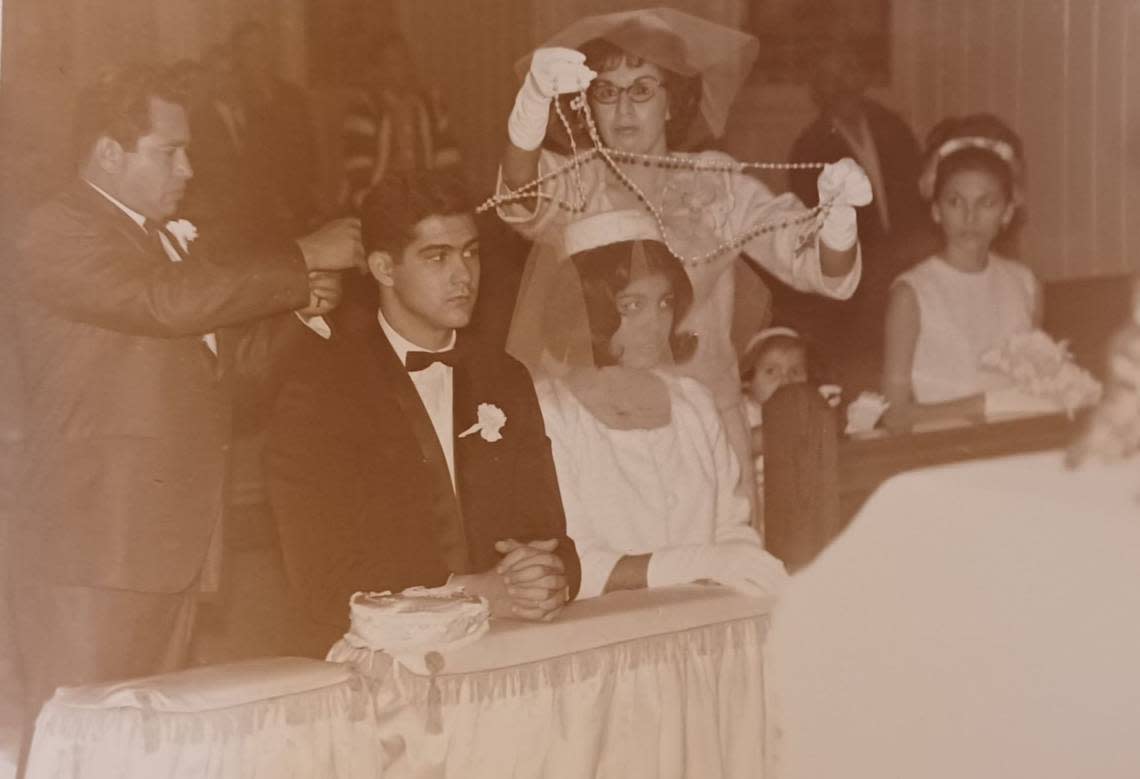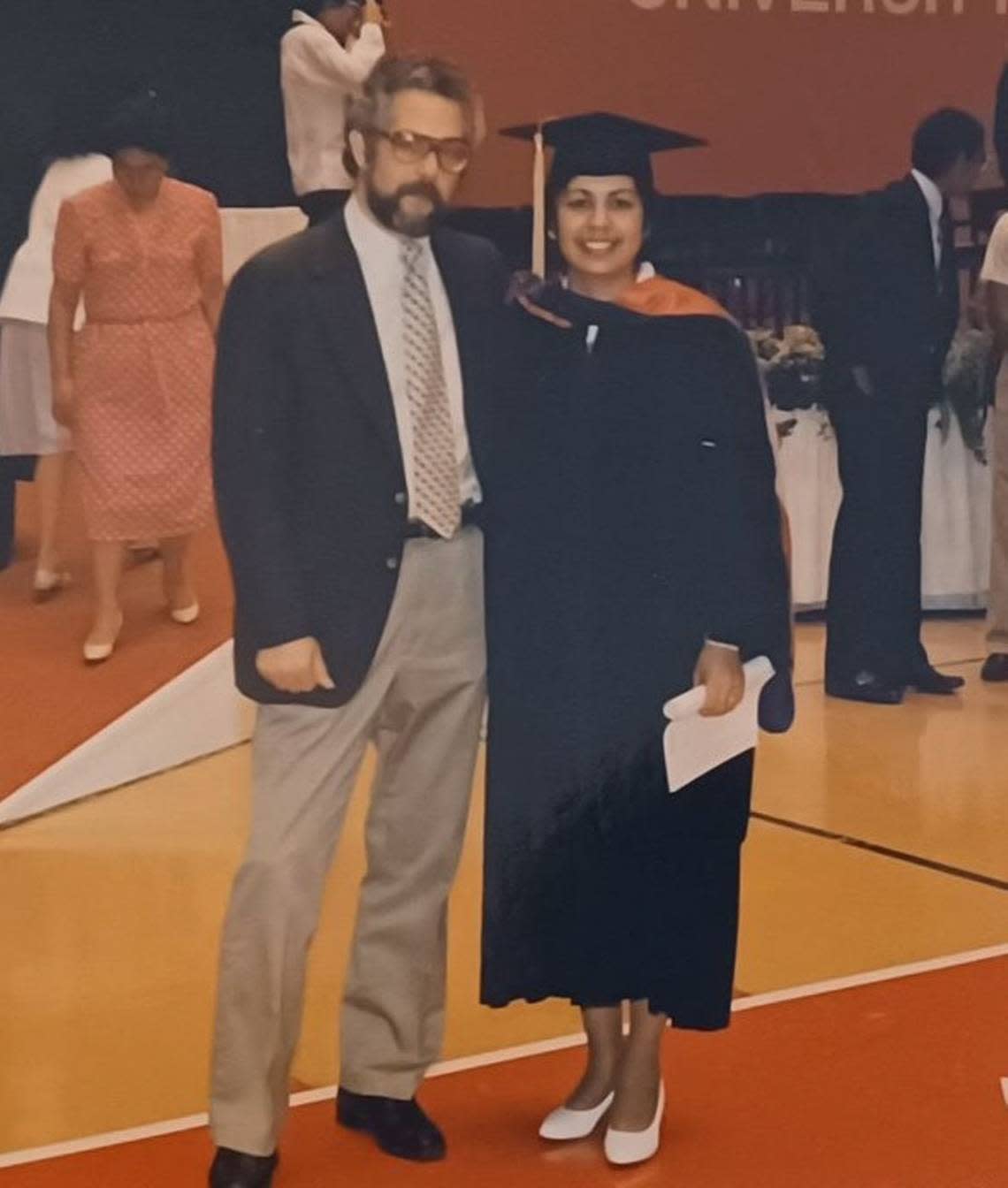Fueled by grace and grit, this Latina lawyer left a legacy of liberation in Fort Worth
Our Uniquely Fort Worth stories celebrate what we love most about Cowtown, its history & culture. Story suggestion? Editors@star-telegram.com.
Raised in Worth Heights from the 1940s to 1960s, Rita Rodriguez Utt was mentored by loving grandparents. The eldest of five siblings, she learned quickly from paternal grandmother Dolores that refined Latinas acted with class. Maternal grandmother Francisca (Doña Panchita) who spoke primarily Spanish but could cuss in English modeled how to stand up for herself. They armed her with grace and grit.
Some Fort Worth public school teachers and counselors told Latinos/as they lacked the right stuff for college and steered them into trade courses. An aunt who worked as a nurse’s aide offered the only familiar version of a professional. After earning her nursing diploma from Harris Hospital in 1963, Rita worked at John Peter Smith Hospital. She earned an RN degree at the University of Texas at Arlington in 1974.
In an interview, Rita said she had several Latino suitors who were looking for a housewife — not a partner. She met Airman Mike Utt at a Valentine’s dance at Carswell Air Force Base who “followed me home.” Married in 1965, she said her father Jessie disapproved and didn’t visit them until their daughter Jessica’s birth five years later.
Their intercultural relationship grew as Mike learned about Latino culture and Rita learned about Anglo cultures. When they moved to Austin to attend the University of Texas, she met students and professors from around the world. Opportunities she had never imagined opened for her. Rita, Mike, and Jessica moved to Houston in 1979, where Mike worked in management at the Sheraton Hotel.

With three law schools in Houston, Rita told herself, “Girl, you’re stupid if you don’t get a law degree.” At age 39, in 1983, she entered the University of Houston. She toiled for three years, struggling to balance her roles as wife, mother, and law student. In 1986, she graduated and returned to Fort Worth and worked in the Tarrant County District Attorney’s Office, prosecuting criminal cases. Latinos were mostly present in the judicial system as accused prisoners, probationers, and parolees. She witnessed their difficulty in proving their innocence with poor communication skills and low educational levels. Rita interpreted in court for the Spanish-dominant accused, advocating for state interpreter certification. She told the writer about an attorney describing Judge Pete Perez as a member of the “Supreme Court of Mexico.” Later, she worked for Lollar Phillips and Factor law firm and in 1991 opened a private practice with David Flores.

Rita and Mike jumped into the Fort Worth political world, campaigning for local, state, and national Democratic candidates. She joined the Fort Worth Chapter of the Mexican American Democrats (MAD). In 1991, she accompanied other Tarrant County minority leaders to Washington, D. C., where they advocated voiding the Texas redistricting plan that would dilute minority voting strength. That year, she submitted to the city’s Charter Review Committee a proposal to expand the city council to 11 members: 10 elected from single-member districts and the mayor at large.
When news media circulated the Los Angeles police beating video of Rodney King in 1991, local police pointed to the decline in complaints. Rita countered that people stopped filing complaints because of the lack of police department responses.
In 1992, she ran for Criminal District Court Number 2 judge against incumbent Judge Lee Ann Campbell Dauphinot. In a survey of Tarrant County Bar members, 64% voted they preferred Rita for the judge position and 76% thought her qualified. Dauphinot received 36% preferred and 42% qualified votes. In the actual election, Dauphinot won with 58% and Rita with 42% of the votes.
Frustrated with weak Fort Worth Latino/a political strength, she joined Hispanic 2000, an organization foreseeing the growth of the Latino population and the need for more Latino/a elected officials and voters. In response to critics, she said, “Watch the lips, folks. We want Hispanic representation. We don’t want to overthrow the government.” She discovered their political activities floundered primarily due to the lack of political maturity. She said, “We self-destructed. We weren’t together long enough to understand that we could disagree and support different candidates but that we could come back together. ... There are old grudges that people have kept forever.”
In 1987, she promoted Latina leadership with the founding of the Fort Worth chapter of the Hispanic Women’s Network of Texas. Her organizational skills catapulted her to state chair of the network in 2010 and drew the admiration of Latinas across the state. Lupe Morin, a 30-year colleague, eulogized her in March 2024 as a “strong, natural leader with compassion and common-sense approach to everything she does.” Rita’s daughter Jessica shared at the memorial Rita’s advice, “you own your own power.”
Eva Bonilla, a cousin and colleague, said “Rita should be remembered as a strong leader not just because she was a Latina.” Johnny Lewis, former probation officer, said, Rita told him “not to give up on people.” Mike Utt said, “The worst thing you can do is to tell Rita, ‘no you can’t’ because she will go ahead and do something.”
A lover of books and Latino/a history, Rita founded the Historians of Latino Americans in 2019. She and doctoral student Cecilia Sanchez Hill interviewed Worth Heights’ elderly Latinas about their courageous lives.
Rita Rodriguez Utt died on Feb. 25, 2024, leaving a liberating history.
Author Richard J. Gonzales writes and speaks about Fort Worth, national and international Latino history.
